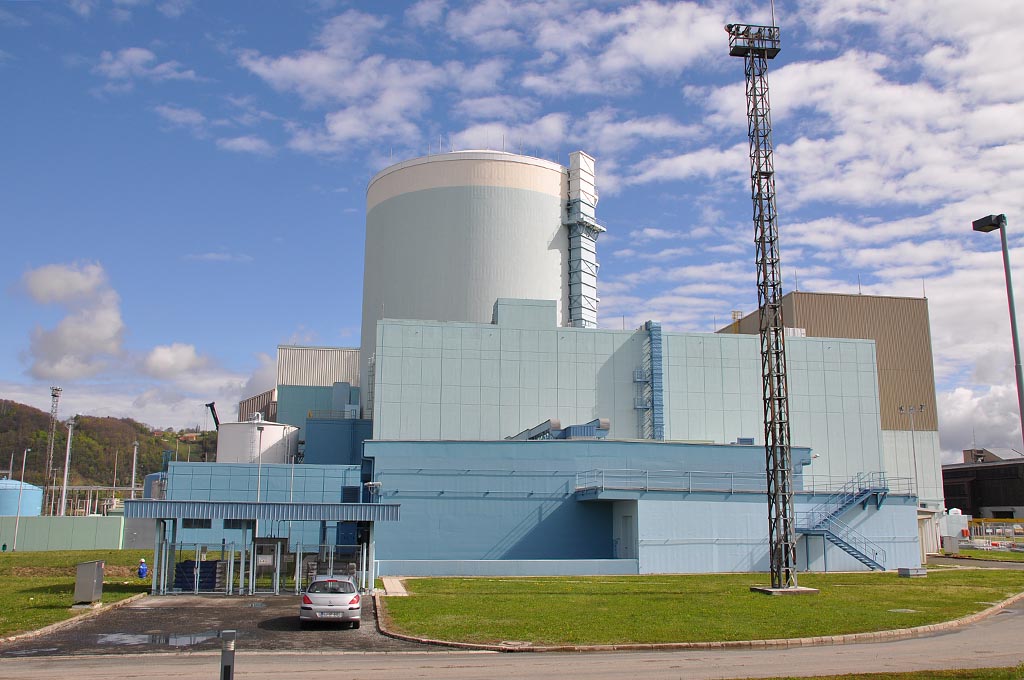Our northern neighbours are clearly among those contributing to the general uncertainty surrounding the future of Slovenia’s energy supply. Austria has a long history of opposing nuclear energy, including in Slovenia, and it is being helped by a well-developed network of sympathisers among political actors and NGOs from Slovenia.
The website jedrska.si (nuclear.si) clearly presents the network of influences opposing the construction of the second unit of the Krško nuclear power plant or advocating the closure of the entire plant. It features well-known actors such as the green party Vesna, the Institute for Social Ecology, and the NGO Association for Natural Development Focus.
Our readers will also remember the Association Focus from the referendum campaign on the amendment of the Water Act, when they fought against the saif act together with the 8th of March Institute (Inštitut 8. marec). However, they are not the primary actors in this story.
On the 30th of November this year, an international conference on nuclear energy was held at the Cankarjev dom congress centre in Ljubljana. The conference was organised by the Green European Foundation, a European political foundation, with the support of the Slovenian Institute for Social Ecology, represented by the President of the Vesna party, Urška Zgojznik. The conference, entitled “Energy security: green and fair”, featured a special panel discussion on nuclear energy.
Independent ecologists and/or party colleagues?
The speakers at the conference, according to the website jedrska.si, are part of both the political and non-governmental sectors. For example, they use titles in the announcement of the conference that do not indicate that they are from the same political party. Among them are Robert Godina, Klemen Belhar, Urša Zgojnik and Jure Vetršek.
Austrian public funds to influence Slovenian politics
The event was also attended by an MEP and Patrizia Lorenz from the Austrian NGO Global 2000 – Friends of the Earth Austria. This organisation is funded from three sources: private donations, European Union funds, and Austrian public funds. In other words, they also receive part of their funding from the Austrian authorities.
“GLOBAL 2000, together with its Slovenian partners, is advocating that the reactor be inspected by independent international experts and that safety upgrades be made. If this is not possible, the reactor should be shut down,” they write on their website. On their website, they have a whole section dedicated to our nuclear power plant – here: https://www.global2000.at/akw-krsko
They also write, “Together with our Slovenian partner organisation FOCUS (Friends of the Earth Slovenia), we fought for an environmental impact assessment in court in 2020. More than 61,000 people and many celebrities spoke out with us against the extension of the risk, and national politicians and the responsible Austrian federal government spoke out to their Slovenian counterparts.”
The conference in question was also validated by a representative of the Slovenian authorities, namely the Director-General of the Directorate for Energy of the Ministry of the Environment, Climate and Energy, Hinko Šolinc, MSc.
Direct foreign propaganda
The participants at the international conference were also exposed to direct propaganda against nuclear energy. For example, they were given a booklet with the direct title Nuclear Energy – a Dead End in Climate Change Mitigation. As if the title was not suggestive enough, the editor of the booklet put a picture of the Krško nuclear power plant on the cover.
The publishing of the booklet was funded by three organisations. The Green European Foundation, the Institute for Social Ecology, and the political foundation of the Austrian Greens, FREDA – Die Grüne Zukunftsakademie. The booklet was edited by Maria Niedertscheider, who is employed by the Austrian Environment Agency. The booklet also features a contribution by an Austrian MEP who explains in a straightforward way that the Krško nuclear power plant should be closed down, and recommends solar, wind and geothermal energy generation instead.
Jedrska.si writes that the booklet does not problematise the construction of the second Krško nuclear power plant unit, but opposes the whole plant, which, by the way, has been providing a safe and clean source of electricity for both Slovenia and Croatia for 40 years now.
Origin at the top of the country
Austria has no nuclear power plants of its own, but it does have a special sector for nuclear affairs, whose aim is to make it more difficult for countries that do have plants to obtain electricity from nuclear power. It operates under the Climate Ministry, headed by Leonore Gewessler of the Austrian Green Party.
How strong is the Austrian lobby?
Prime Minister Robert Golob announced some time ago that a referendum would be held on the construction of the second unit of the Krško nuclear power plant in Slovenia. All the above-mentioned actors, including the Austrian authorities, will surely be involved in this, through the various circuits that are ready (for one reason or another) to pursue their national interests. And time will tell just how strong this lobby is.
But there is also a special chapter on purely internal interests, which are probably best represented by Prime Minister Golob himself as the former head of the state-owned Gen-I energy company. As we know, it is this company that has a business interest in solar panels, and the Prime Minister himself has announced the mass solarisation of Slovenia.
Ž. K.


